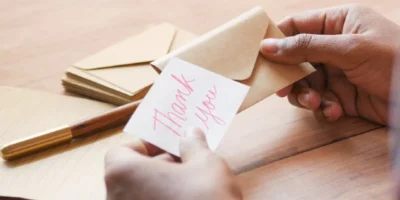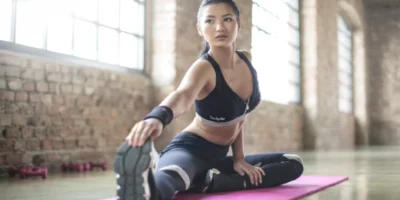Tossing and turning in bed? Here are 10 tactics that help you if you need to know how to go to sleep faster.
After a busy day, who doesn’t want to get home and switch off? However, when you lie in bed, sleep doesn’t always come. Even with that tiredness, sleeping can be a challenge because the mind doesn’t stop and the body can’t seem to relax.
And tossing and turning in bed doesn’t help at all, we start to keep an eye on the schedule just by watching the time pass and the rest period shorten. Who hasn’t?
DIY pillow spray recipe for better sleep
How to go to sleep faster
Wait for the ‘sleepy’ signs
Go to bed only when you’re sleepy as the first tactic in how to go to sleep faster — and avoiding making plans or thinking about things that cause concern. And if concerns present themselves, write down on a piece of paper everything you’re thinking: the worries, the pending issues of the day in question, and the demands of the next day, as this helps to reduce anxiety and relax.
Distract your mind
Sometimes we get too focused on worries and thoughts, increasing our concentration on our anxiety and alertness. To avoid this, it is interesting to lead your mind to some thoughts to facilitate your relaxation.
Practice tip: For about 10 to 15 minutes, try to recap how your day went. If it’s interesting, also recall fun stories and memorable moments. Gradually, the mind will be driven by other thoughts and will gradually fall asleep.
Massage
At bedtime, perform a self-massage on the shoulders, neck, ears and all over the face, providing muscle relaxation to help with how to go to sleep. Then calm the streams of thoughts by paying attention to your breathing.
Keep your attention on your breath and rest your hands above your navel, as you inhale observe the air entering through the nostrils and expanding the abdomen, as you exhale, release the air and the body.
With your body relaxed, perform the body ‘scan’: mentally draw your attention to the top of the head and go down to all parts of the body: face, neck, arms, hands, torso, groin, legs and feet.
Outfit your sleep
It is essential to invest in a good mattress and pillow, which are suitable and provide good support for your body. The mattress is responsible for bringing adequate support to the spine, relieving pressure on the sensitive points of the body and reducing movement during sleep.
Currently, there are a variety of mattresses on the market with innovative technologies, such as viscoelastic, Fresch Latex, Latex Cooper and Norma Block springs, among other options, which have the specific function of relieving pressure points, improving blood circulation, relaxing muscles and avoiding excessive movements during sleep, thus being helpful with how to go to sleep faster, and providing a restful and revitalizing sleep.
And the sleepwear should also be light, loose-fitting and made of a fabric that guarantees comfort, such as cotton.
Maintain an environment conducive to sleep
Creating a quiet environment is a practice that can help with how to go to sleep faster. You can create a comfortable environment with a dark, well-ventilated room with the cool and quiet climate.
Avoid screens and blue light
In addition to not exposing yourself to electronic devices before bed, it is worth using apps such as f.lux (iPhone) and Twilight (Android). These apps can calculate the local dawn and dusk times, and as an effect trigger filters so that the color of the screen adapts to the time, filtering out the blue spectrum after sunset.
Have a hot drink
Having a hot drink before bed can help with how to go to sleep faster and stay asleep better. Here are some suggestions: a glass of hot milk with honey, chamomile tea, fennel tea, or lemon balm. These substances increase levels of tryptophan or melatonin, hormones that help regulate sleep.
Take a hot bath
A warm bath can be beneficial in making you relax your body and mind, preparing you for how to go to sleep faster and get a better night’s sleep.
Bathing before bed helps relax your muscles, reducing tension and relieving pain. In addition, a warm bath can relieve stress accumulated throughout the day by promoting the dilation of blood vessels. This helps to decrease the activity of the sympathetic nervous system (”fight or flight mode”) and increase the activity of the parasympathetic nervous system (”resting mode”).
Practical tip: take a hot shower and prepare a hot drink. As you lie in your bed, do breathing exercises, distract your mind until you fall asleep.
Soothing sounds
Put on soothing music to help you relax and move into the other tactics for how to go to sleep faster — but make sure it is a sound that doesn’t have modulations, that is, that doesn’t vary much between high and low, but maintains an even vibration. And put that ambient sound already programmed to turn off, about 20 minutes is enough to fall asleep.
There are some songs that can help calm you down, being an excellent resource to help us fall asleep faster. Some people also fall asleep listening to certain sounds such as rain, birds, and nature in general.
Practical tip: put on some relaxing music or sound, there are several playlists in music apps with this theme, and try to take deeper breaths (see next tactic).
Control your breathing
When we breathe deeply, we make our brain understand that it’s time to slow down. This practice helps to relax the body and slow down the heart rate, which are key for how to go to sleep faster.
Practical tip: 4-7-8 method, which consists of inhaling through the nose for 4 seconds, holding the breath for 7 seconds and exhaling through the mouth for 8 seconds.
Visualizations
Very subtle, almost static moving images can also help with how to go to sleep faster: flowing water, rain, swaying leaves, or fish in the sea. Opt for one of them without switching back and forth between what you’re viewing. These images help because they activate neural circuits that help induce sleep.
Selective reading
Reading books and magazines is another tip, but focus on neutral texts that do not induce argument or excitement. Poems, positive messages, and light novels are the most suitable. No Agatha Christie for bedtime.
The ideal is not to provoke strong emotions, just as vibrations and images should not arouse attention so as not to interfere with sleep induction, neurology says.
Sleep ‘meditation’
There are specific meditations that help with how to go to sleep faster, with voice modulation, gentle marking and no long pauses. Speech maintains a homogeneous pattern, ensuring this feeling of relaxation.
Practice relaxation techniques
Relaxation practices contribute to calming the body and mind, in addition to bringing a greater sense of well-being. Try the meditations mentioned above, (there are numerous mobile apps with guided practices), perform deep breaths or progressive muscle relaxation, contracting and releasing your muscles, starting with your feet and going up along your body.
Relax your muscles
An excellent way to relax and fall asleep faster is to focus on relaxing your muscles. When we are stressed, it is common for our muscles to contract and our mind to be alert. So, a great way to show your brain to slow down its activity is to relax your muscles.
Practice tip: Lie on your back in a comfortable position and inhale deeply. When you exhale, imagine that your muscles are loosening and relaxing. Repeat the process for 3 times. If you find it more suitable, do it for parts of your body.
Sleep hygiene / schedule
In addition to these measures for how to go to sleep faster, it is worth remembering that sleep hygiene is essential to improve your sleep. Sleep hygiene is a series of actions that contribute to preparing your body to sleep well with restful sleep. Here are some of the practices we outlined above to adopt in your routine:
Create a regular routine of sleep schedules and habits, using the tactics above:.
- Try to go to bed at the same times and try to wake up at the same time every day. Establishing a routine of sleep schedules can help you regulate your “body clock”.
- Avoid the use of heavy foods and stimulating drinks close to bedtime, such as coffees and energy drinks.
- Limit your exposure to blue light to calm your brain before bed. An excellent suggestion is also to practice a relaxing activity.
Conclusion
Getting a good night’s sleep is essential for your health and well-being. However, there are many people who have difficulty falling asleep. If falling asleep or staying asleep continues to happen, it is advisable to seek medical attention so that he can analyze your case and provide the best appropriate care for your case.
Also avoid medications such as clonazepam and diazepam, commonly used for sleep. These medications can be addictive. Look for a specialist and only medicate yourself under medical advice.
Photo by SHVETS production
Photo by SHVETS production




